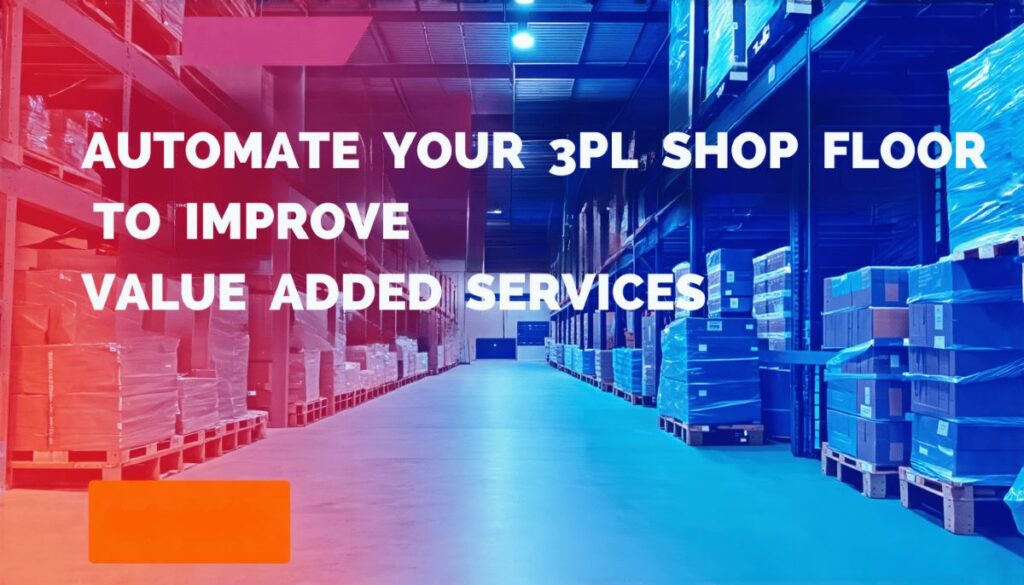
We’ve said it before and we’ll say it again: brands and sellers have higher expectations than ever for their shipping partners. Just being able to move products, track returns and determine condition for disposition isn’t enough anymore.
Your 3PL clients want you to handle more (if not all) of their returns processing activities for them. Instead of just receiving and dispositioning returns, they may want you to also repackage items, retag clothing, test functionality and refurbish products, and more. While returns management itself might be considered a value added service (VAS) to some, it’s increasingly becoming an expected part of a 3PL’s service offering.
But it’s difficult to include value added services using manual processes, especially during global labor shortages like the one still hurting supply chain organizations. (As of late 2023, 76% of supply chain leaders said they were still dealing with labor shortages.)
That’s why automating more of your workflow is so important: it can help you get the same amount of work done (or more) even in the face of a shrinking workforce. Here’s what you need to know:
Why 3PLs Need to Offer Value Added Returns Services
There are a lot of compelling reasons for offering value added services related to returns. Many of them are the same considerations you made when you decided to offer returns handling in the first place:
· Higher revenue. More services means a more favorable fee structure for your business, as you’re providing your customers better value.
· Better customer relationships. Helping your customers get the most value back from their returns is a great way to cement yourself as a valued partner, rather than just another expense.
· Easier customer acquisition. Offering more services than your competitors helps you stand out in a crowded field. If you can handle all of the returns processing activities your customers hate, that’s a great selling point when you’re looking to grow your business.
· Less environmental impact. While it might be a less compelling reason to your C-suite than the more revenue-related points above, offering full returns handling services – even through to resale, destruction, and/or disposal – reduces the environmental impact of returns. Instead of dispositioning returned products and sending them back to the customer to deal with, you’re cutting down on the amount of transport needed for each item. This may be a big selling point for sustainability-minded brands and their end consumers.
How Floor Automation Can Help
All of those extra returns services can mean a heavier workload for your team if you’re dealing with a lot of manual processes – which might make those services too much of a headache to offer.
But with an automated solution, you can optimize the whole workflow. Using Octolan’s solution as an example, our shop floor capabilities automate the standard operating procedures defined by you and your customer. Using this automated SOP, the solution prompts your users to perform specific tasks throughout the returns process.
From the moment a returned product enters your facility, your user can scan it to get text instructions, step-by-step prompts, and/or images to clarify steps and guide them as they inspect, sort, repackage, and disposition the return.
Not only does this kind of automated workflow help cut down on the time needed to handle each return, it also reduces the amount of training you have to provide new employees. So in times of labor shortages or high turnover, you can keep processing returns as usual, with the system doing most of the guidance instead of another employee acting as trainer.
During the dispositioning process, the solution can also help your team recover consumables like batteries, labels, charging cables, and boxes. This can help reduce the cost of otherwise disposed-of returns – and you can use these items to replace missing ones on another return so it will be resalable in a new, like-new, refurbished, or other premium condition.
The other big benefit of our shop floor automation is that it provides granular billing data to help justify any added costs associated with your premium services.
Offering returns processing to your customers is a good first step toward differentiating your 3PL and positioning you as a partner. But more and more brands expect even more of their shipping partners, so automating the returns process to give them more value added services can help you both retain your existing customers and attract more. Ready to get started? Reach out today.